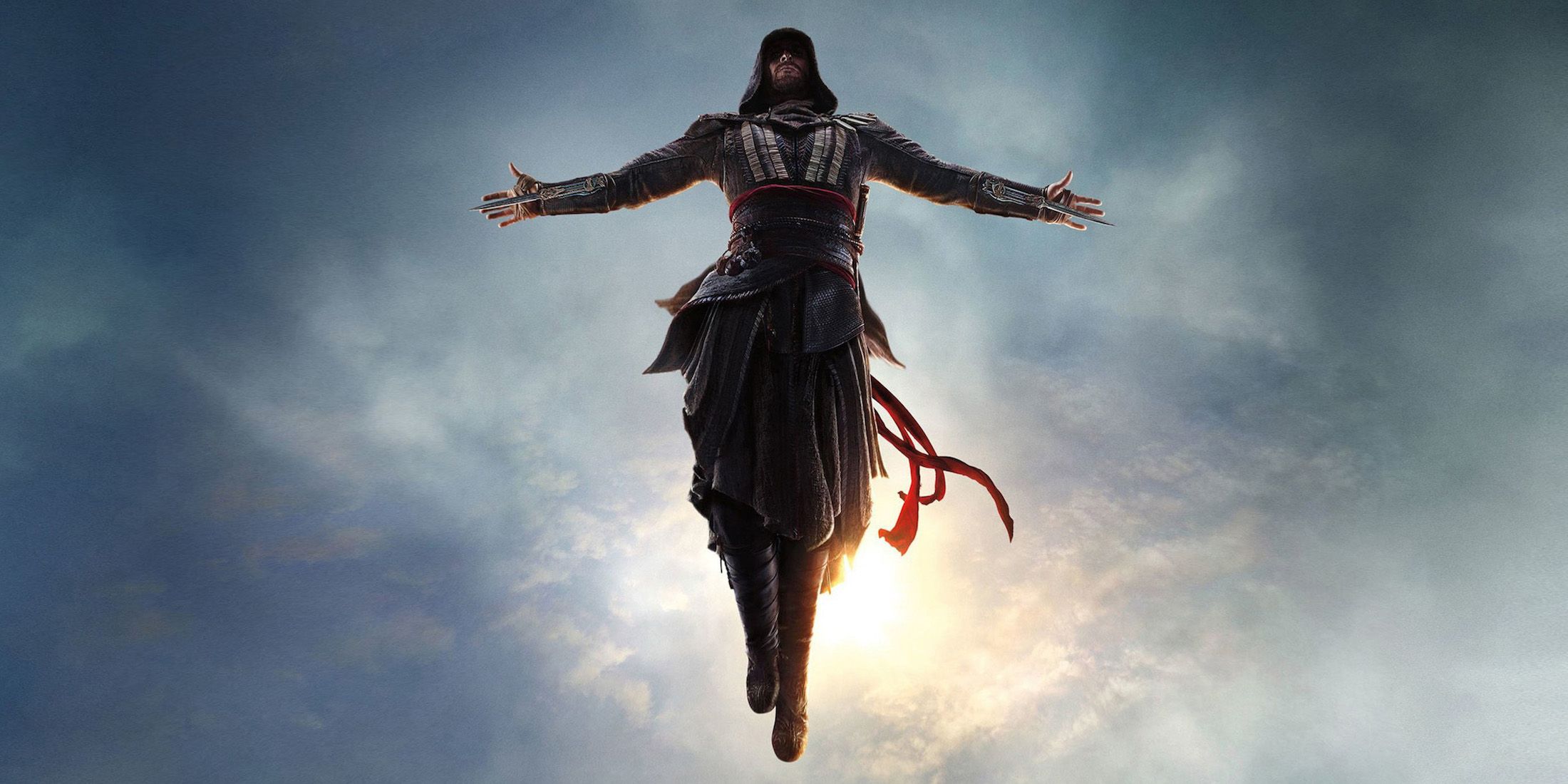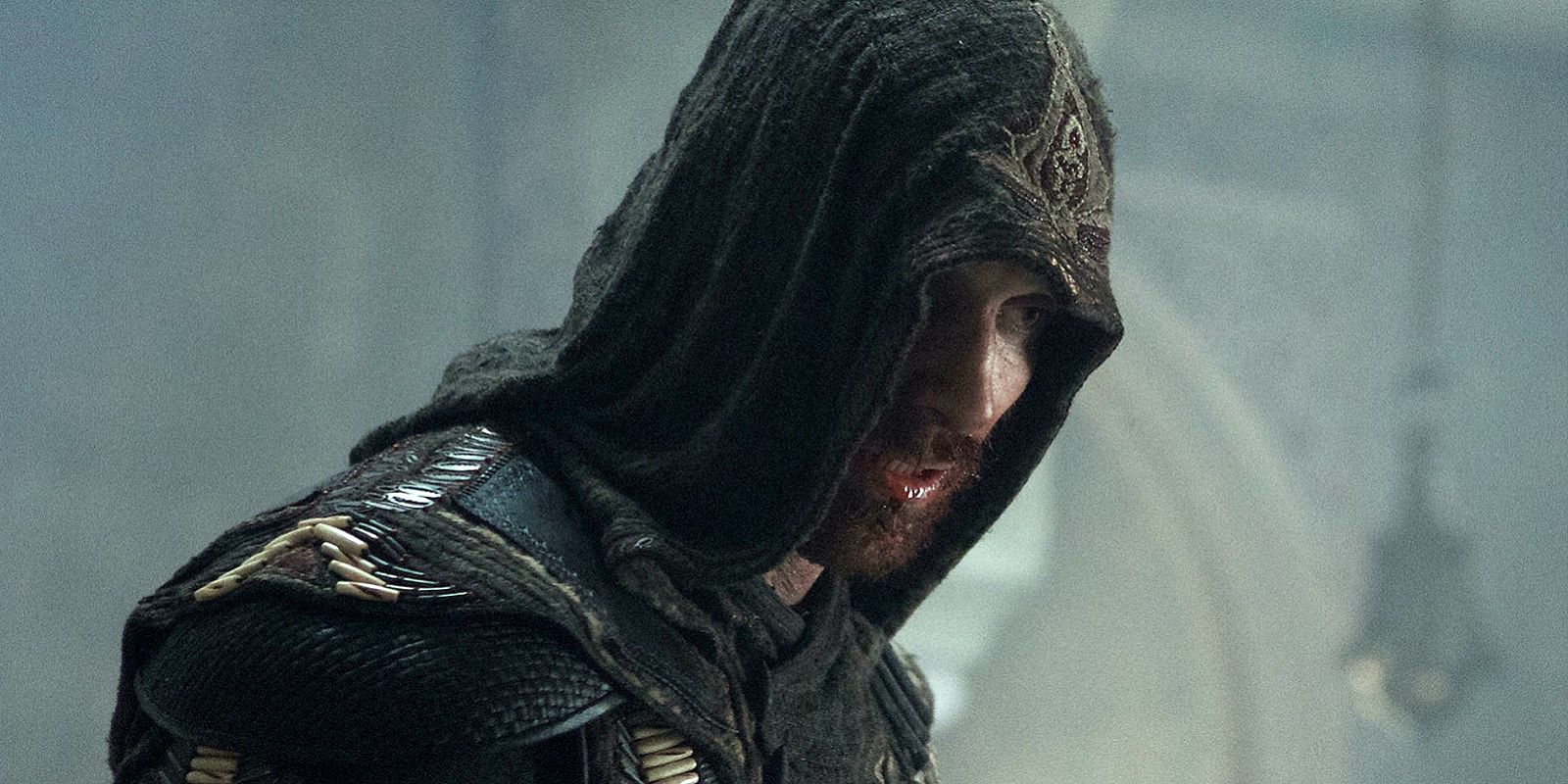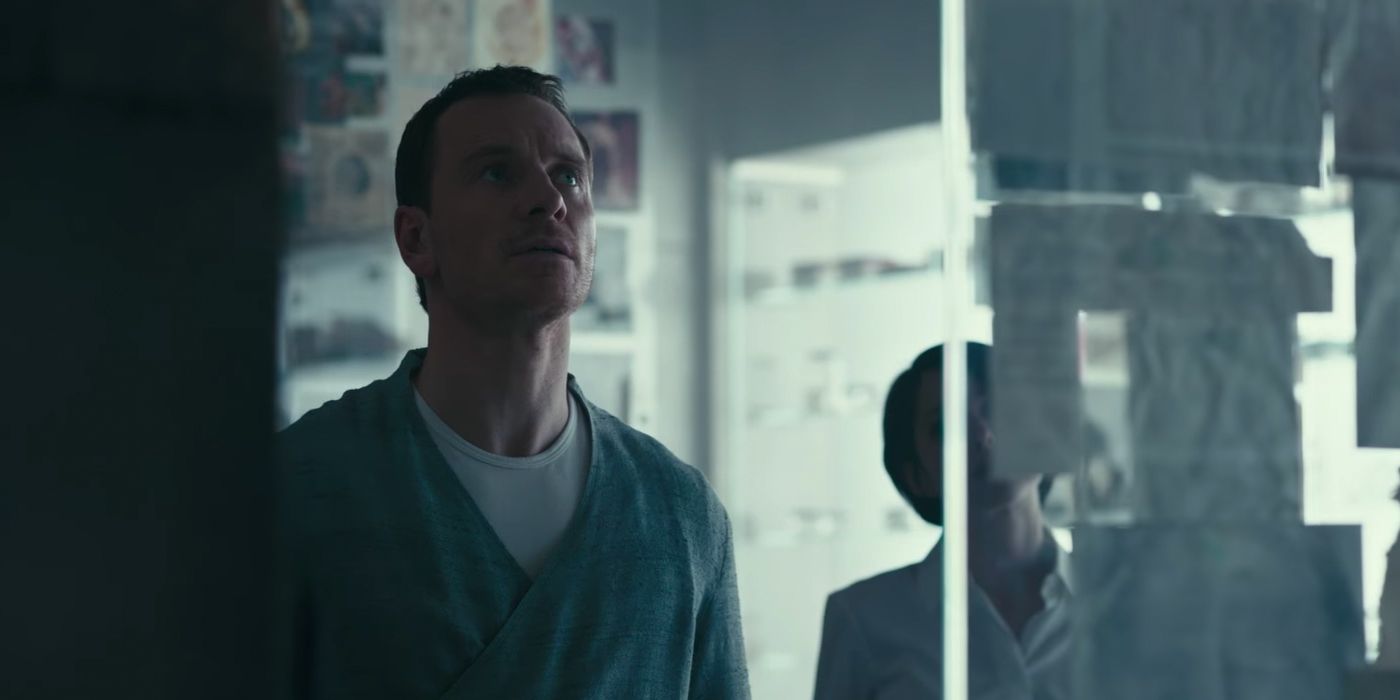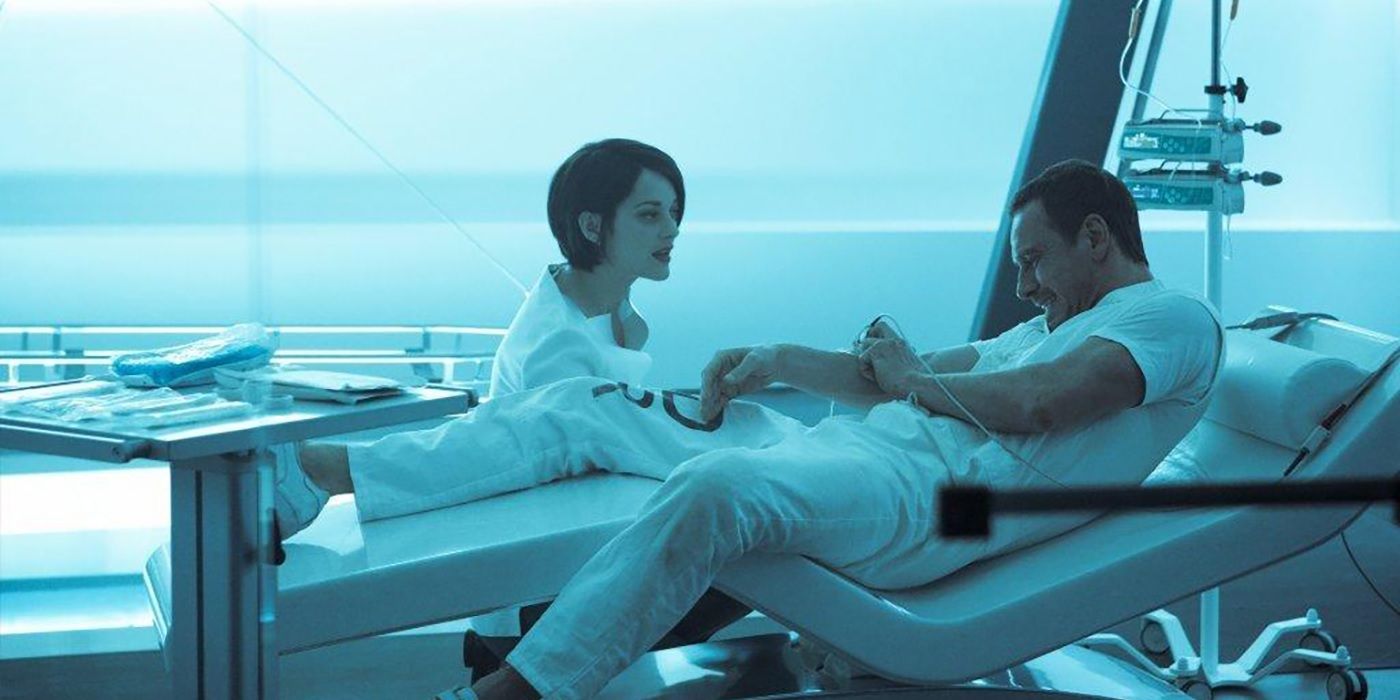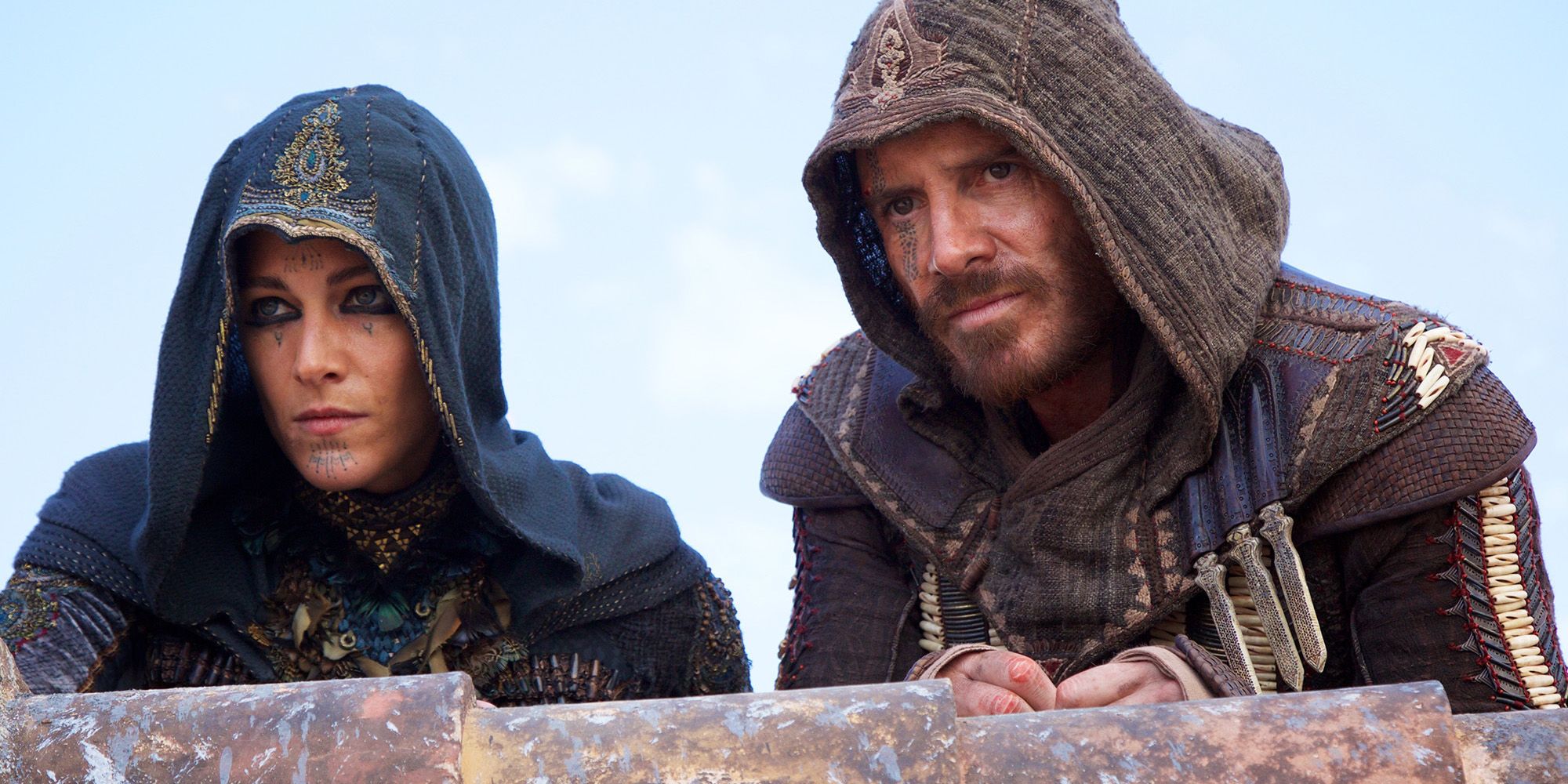Assassin's Creed is a step in the right direction for video game movies but slick action and beautiful visuals are undercut by a hollow hero story.
Following the murder of his mother, and thirty years spent running from his pain, the past finally catches up to Callum Lynch (Michael Fassbender) - as the criminal is set to be executed for his past crimes. After lethal injection has been administered, Callum awakens to discover he has been saved by a mysterious organization: Abstergo Industries. Unfortunately, Abstergo's motives in springing Lynch aren't altruistic and, shortly after his rescue, the company forcibly enlists Lynch into an experimental research initiative, called the "Animus Project." Lead by Sophia Rikkin (Marion Cotillard), the Animus Project allows the subject to enter a virtual environment and relive ancestral memories (stored in our blood). Imprisoned by Abstergo, with the promise that he'll be released if he cooperates, Lynch enters the Animus - where he accesses the memories of his centuries-old ancestor, Aguilar de Nerha (also played by Fassbender), an Assassin during the Spanish Inquisition.
Through Aguilar de Nerha, via Lynch, Abstergo seeks to uncover the location of an ancient and powerful artifact (previously hidden by 15th century assassins); however, in the process, Lynch uncovers new information of his own - most notably insight into his personal history, the true identify of his captors and, through his time in the Animus, new skills that could be the key to his escape.
Based on the blockbuster video game series of the same name, Assassin's Creed is the first major adaptation to be co-produced by a game studio, Ubisoft Motion Pictures, in order for franchise architects to leverage significant creative control over the final film. In an effort to produce an Assassin's Creed film as popular as its source material, Ubisoft enlisted Justin Kurzel, who directed Michael Fassbender in 2015's Macbeth, to helm their first foray into film - from a screenplay that was written by Michael Lesslie, then rewritten by Adam Cooper and Bill Collage. Given that video games have evolved into rich platforms for meaningful storytelling and artistic expression, fans have long-awaited the arrival of quality film adaptations (and an end to the video game movie curse). Unfortunately, the wait for a great video game movie adaptation continues - as Assassin's Creed is a messy combination of pros and cons: slick action, intriguing sci-fi concepts, and rich cinematography are undercut by flat drama, convoluted world-building, and (considering its heady premise) a surprisingly uninspired character journey.
Instead of a direct adaptation, drawing from an established Assassin's Creed character or story, Kurzel has crafted an entirely new ancestral connection to follow; though, in spite of the clean slate, established fans will notice plenty of similarities between the story of Callum Lynch (along with his ancestor Aguilar de Nerha) and early entries in the game series - which centered on Desmond Miles (who walked away from the modern Assassin Brotherhood when he was a young man). The central protagonist isn't the only change from the source material - as Kurzel and Ubisoft Motion Pictures refurbish pieces of mythology and reimagine the Animus technology, in the interest of crafting a more approachable film experience for all audiences. Yet, the balance between fan service, creator control, and pandering to casual moviegoers, results in an unruly mix - a final product that isn't likely to please any one slice of the audience entirely. Even the most dedicated game fans may question how certain aspects of the franchise, such as the "leap of faith," are applied in the context of Kurzel's movie (read: many are vacant name drops or expository tangents rather than genuine application of Assassin's Creed canon).
It's unfortunate, because Kurzel imbues Assassin's Creed with an artistry and sincerity that has been missing, thus far, in prior video game adaptations but little of it makes an impact because the film simply does not take time to develop its central heroes and villains (in either the past or the present). Game fans who simply want to see Assassin's Creed action recreated in live-action on the big screen will be treated to genuinely slick parkour chases and flashy hand-to-hand combat but in trying to establish the world and characters, of both near-future society and the Spanish Inquisition, everyone is muted and no one has anything particularly insightful to communicate about humanity in the 15th or 21st century. Kurzel adds a few beautiful flourishes, representative of the director's potential as a storyteller, but the final film doesn't leave room for any of these finer points to resonate.
Both Callum and Aguilar are presented as brooding killers - juxtaposed only by the suggestion that Callum has done terrible things in order to secure his personal well-being and survival while Aguilar has pledged to sacrifice his life for the Assassin Brotherhood's cause. Kurzel manages to create fitting contrast between the pair; yet, their differences are used as a measurement of Callum's journey through self-discovery (which is, itself, extremely brief), not as a point of dramatic tension or character development. Audiences only gain fleeting glimpses into Aguilar's life - which may be Assassin's Creed's biggest missed opportunity. Callum's journey is charted in a very familiar three-act hero story (from complacency, to temptation, to embracing a higher calling) and, with Aguilar relegated to action-lead, rather than a nuanced character on his own, the two rarely reflect anything substantive about the other - leading to a series of emotionless revelations and predictable narrative turns.
Sadly, every other character in the film suffers from the similar shortcomings. In a film about examining history for clues to a better future for humanity, there's very little emphasis placed on character backstories or the larger Assassin/Templar conflict. Surely, Kurzel and the actors had ideas that informed performances but that substance is largely missing from the finished film. Second to Fassbender, Marion Cotillard receives the most screen time and development as Animus Project director Sophia Rikkin. Sophia is more fleshed-out than other characters but she's still used to define the world of Assassin's Creed - embodying the gray area of the otherwise black and white conflict between the Assassins and Templars. Aside from action, Kurzel's film is at its best when Cotillard shares the screen with Jeremy Irons (playing Sophia's father and Abstergo CEO Alan Rikkin), but Assassin's Creed still struggles to make use of the talented performers. Ariane Labed is wasted as Maria, a member of Aguilar's order who, during the first major action set piece, is a scene-stealer - only to be undercut by the needs of the Aguilar-focused story throughout the second and third act.
Assassin's Creed is also playing in 3D but there's little reason to spring for an upgraded ticket. Kurzel and cinematographer Adam Arkapaw (True Detective and Macbeth) make use of a rich visual palette - made all the more immersive by elaborate period costumes and set design. Yet, while Aguilar's adventures in the 15th century Spain provide a few moments that will be accentuated by 3D, the dark Animus environment and stark Abstergo labs prevent Kurzel from making interesting (or worthwhile) use of 3D.
Assassin's Creed is a step in the right direction for video game movies but slick action and beautiful visuals are undercut by a hollow hero story. Moviegoers who are already familiar with Assassin's Creed through gaming, comic books, novels, or short films, will likely have an easier time appreciating Kurzel's adaptation - given that knowledge of source materials will fill in pesky narrative gaps. On the other hand, Kurzel's attempt to please everyone (moviegoers, game fans, and the game studio) ultimately undermine the film's ability to excel in any one vertical. Despite extraordinary pieces in its journey to the big screen (proven talent behind and in front of the camera, producers who are invested in a quality Assassin's Creed multimedia brand, not just as a potential box office franchise, and pressure from fans to end the video game movie curse), Assassin's Creed falls short in the most ordinary way: a dull story filled with forgettable characters.
TRAILER
Assassin's Creed runs 115 minutes and is Rated PG-13 for intense sequences of violence and action, thematic elements and brief strong language. Now playing in regular and 3D theaters.
Let us know what you thought of the film in the comment section below.
For an in-depth discussion of the film by the Screen Rant editors check back soon for our Assassin's Creed episode of the Total Geekall podcast.

